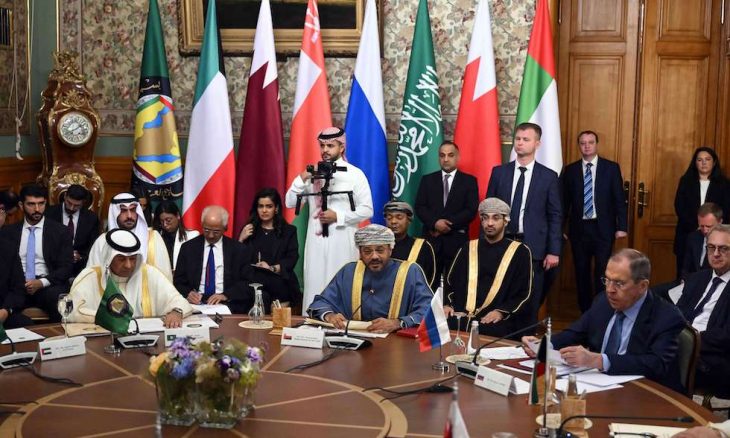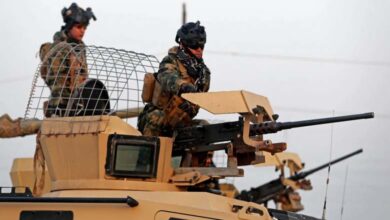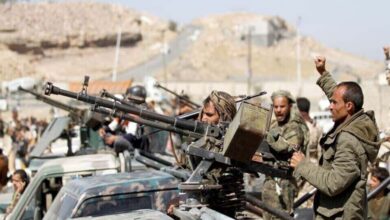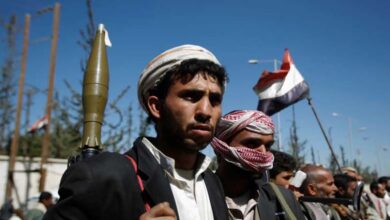What are the main outcomes of the strategic dialogue between Russia and the Gulf Cooperation Council (GCC) and the convergence between them?

Russia and the Arab Gulf held a summit
The sixth ministerial meeting of the strategic dialogue between Russia and the Gulf Cooperation Council concluded in Russia, which witnessed several political-level discussions.
The final statement of the strategic dialogue between the Gulf countries and Russia called for support for peace talks in Jeddah and efforts to enable Sudanese parties to achieve peace. It also emphasized the importance of preserving maritime security, countering threats to maritime navigation lines and oil facilities in the GCC countries.
Yemen and Libya in Russian talks
The statement urged all Yemeni parties to immediately engage in direct negotiations under the auspices of the United Nations. It also called for the withdrawal of all foreign forces, foreign fighters, and mercenaries from Libya and the conduct of elections.
The ministers emphasized the importance of pooling efforts to achieve peace, security, stability, and prosperity worldwide. They emphasized maintaining the international order based on respect for the sovereignty, territorial integrity, and political independence of states, non-interference in internal affairs, and refraining from the use or threat of force. They emphasized facing challenges and crises through peaceful means, prioritizing dialogue, and resolving conflicts through negotiations.
Welcoming Gulf mediation in the Ukraine crisis
The ministers welcomed the efforts of the GCC countries in mediating to create conditions for a political solution to the crisis in Ukraine, in accordance with international law and the United Nations Charter. They expressed hope that these efforts would lead to a just, comprehensive, and sustainable peace.
The ministers emphasized the importance of unimpeded access to food and fertilizers to global markets, as well as humanitarian aid, to contribute to ensuring food security for affected countries.
The ministers welcomed the agreement between Saudi Arabia and Iran, which included the resumption of diplomatic relations between the two countries. They expressed hope that this agreement would be a positive step towards resolving all regional disputes through dialogue and diplomatic means.
Dr. Fahd Al-Shelaimi, the Gulf Forum for Security and Peace, stated that the geopolitical situation has led the Gulf countries to engage with partners other than the United States and the European Union. Gulf countries have demonstrated political maneuvering, flexibility, and neutrality towards all conflicting parties, especially after the division in the Ukrainian-Russian-American-European war. Gulf countries have united themselves between two options and created a third option. They stood either with Russia or with America, and Gulf countries worked with the European Union, America, and Ukraine to consolidate international legitimacy. They stood with Russia in the oil file and made China take advantage of the available resources. Thus, Gulf countries sought their political interests and compliance with international law.
And Al-Shelaimi added that economically, Gulf countries want to consider their interests despite American and European pressures. For instance, Saudi Arabia is reducing its production by a million barrels per day, while Russia, as the largest oil producer outside of OPEC, needs to be coordinated with. That is why OPEC+ intervened, and I believe it is important to maintain a regional balance between Russia, Europe, and the United States.
Dr. Manif Al-Malafakh, a professor of political science, stated that the strategic dialogue between the GCC and Russia is not the only dialogue between the GCC countries and different countries worldwide. The GCC has several strategic dialogues with countries and regional groups around the world, amounting to approximately 15 strategic dialogues, including Russia.
He added that the aim of these dialogues is to expand the base of consultation and cooperation between the GCC and different countries in various fields, including economic, trade, educational, cultural, and other areas.
Al-Malafakh further explained that looking at the sixth round of this dialogue, we see the final statement that emphasizes the necessity of respecting international decisions, resolving disputes through diplomatic means, and the reality of the Russian-Ukrainian crisis, which has a political aspect. However, it had a place in the discussions. A joint action plan was adopted between the two sides, reaching a unified position on the unity and sovereignty of Syria and welcoming its return to the Arab League. It also accelerated the agreement to resolve the Palestinian issue and supported the Gulf efforts and mediation to resolve the crisis between Russia and Ukraine. It is worth noting that Saudi Arabia played an important role in this matter when it mediated between the Russian and Ukrainian sides, and the mediation resulted in the release of several prisoners.












